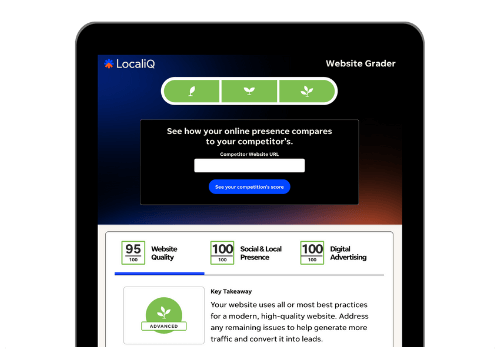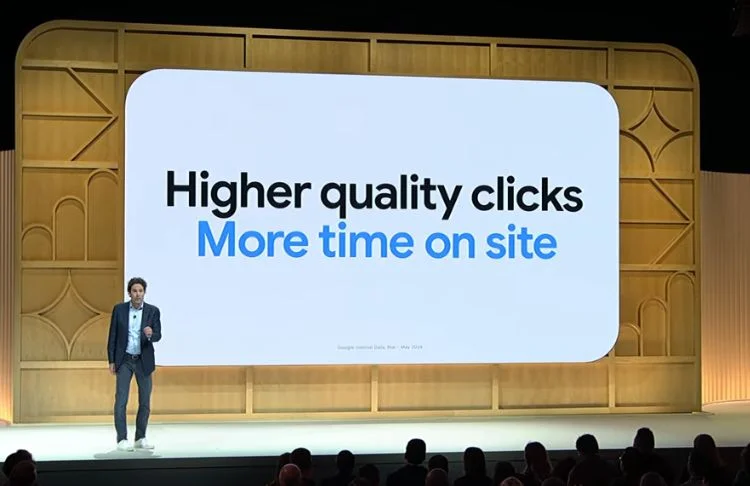During the first couple of months of the year, a recession or economic slowdown didn’t seem likely. However, as we’re navigating the coronavirus pandemic right now, it’s clear that the economy is taking a hit.
It’s important to constantly refine your marketing strategy to ensure you’re hitting your business targets and goals. This can be made more difficult as the year passes, especially as we near a downshift in the global economy.
So how can you prepare your business, and what are some of the most important factors you need to consider in your marketing?
We’re seeing now more than ever that consumers are continuing to use search engines to find businesses near them. And as you anticipate a shortage in your budget that may prohibit you from continuing your paid ad spend at your projected rate for the year, it’s important to invest in strategies that can carry you through — specifically SEO.
Let’s talk about why you need to invest in and improve your SEO right now and what you can do to prepare your marketing as we enter a potential recession.
What is SEO?
First, let’s chat about SEO in general. SEO, or search engine optimization, is just that: A way to optimize for search engines so you can get found for relevant queries. SEO includes pretty much every piece of organic information about your business online: your website, local listings, social sites, reviews, and more. And then within your website, it includes the backend of how everything is set up (web structure), including your site load time and metadata, as well as all the information and content on the frontend of your website.
It’s extremely comprehensive and requires a knowledge of how search engines work, which can be difficult as search engines like Google make thousands of updates a year, as well as a comprehensive strategy to ensure your site and relevant information is being optimized for the queries and keywords that are most likely to get you found by relevant searchers.
Search engines send “spiders” out to crawl websites to analyze all the information on the site that feeds into SEO and then determine when and where to display those sites for relevant queries.
And if it sounds like it might be easy to game the system — you know people are searching for “Dentist near Katy, TX” so you include that phrase all throughout your site — keep in mind that search engines are getting smarter (scary, right?). They’re focused on delivering the most relevant and most valuable results for searchers, so they can determine if a website’s content is written for machines rather than man (or woman). The practice of keyword or phrase stuffing is part of “black hat SEO,” which is a no-no that can get you blacklisted on many search engines (AKA you won’t show up anywhere, and no one wants that).
There’s a lot more that goes into SEO. If you want to learn more about it, check out this blog post.
Why SEO Now?
As mentioned, consumers’ love for search engines is probably never going to fade, and right now, it’s the primary place consumers are looking for businesses. In addition, as voice search continues to rise and is made easier through the use of voice assistants in our homes and on our phones, you want to ensure your business is getting in front of those searchers. The best way to do that: SEO.
One survey found that businesses are going to continue relying on SEO during this time to get in front of searchers and set themselves up for future success.
I’m not going to lie to you. SEO is a long-term strategy. Because there are so many technical things that need to happen in the backend in addition to optimizing the existing content on your site plus all the offsite factors, it takes time to do it the right way. Then, it takes time for search engines to start noticing and taking into account the changes that have been made. Experts say it takes anywhere from three to six months for you to start noticing any type of results.
So, if you’re looking to have your SEO strategy in good shape in the next few months, you need to get started with it right now. I know it’s crazy to think about the end of the year when we’re still in the first half, but it’s important to be prepared. You’ve got to improve your SEO before it’s too late!
How SEO can Help During an Economic Slowdown
You might be thinking “K, so what’s the big deal with SEO?” First of all, I forgive you for K-ing me. Second of all, let me explain. Because SEO is a long-term strategy, the work you do now can prepare you for the future. And that future could look like a place where you might have to scale back your paid ads budget on search engines (sad face). But, if you have a robust presence organically, you can still have a chance at capturing leads from search engines.
It also helps you gain brand awareness now. It’s a common “marketing rule” that consumers need to see your business seven different times before they’ll take action. And that number has only increased as the number of channels, options, and marketing tactics has increased. So, SEO gives you another way to get in front of those consumers and improve your chances of them becoming your customer.
Quick Ways to Improve Your SEO Now
So “quick” might not really apply because it’s SEO we’re talking about. But here are some things you can do right now to give your SEO some love:
- Make sure your website is mobile-friendly. Google and other search engines now index the mobile version of your website instead of the desktop version. So, if your desktop site is amazing, but the mobile version of your site isn’t optimized for the device at all (or worse yet, doesn’t exist!), then you might not be doing too hot on search engines.
- Check your page speed time. Your website should load quickly for both search engines and searchers. More than half of consumers will leave a site if it takes more than three seconds to load.
- Claim and manage your Google My Business page. Google looks at your local listings, or local citations when it comes to determining how and when they’ll display your site. If you have listings out there with different addresses, phone numbers, or business hours, search engines might have a hard time deciphering what’s true. So, it’s important that your business information, specifically your business name, address, and phone number, are correct everywhere across the web. But, if you’re looking to start with just one, you should start with Google My Business. Get our tips for getting your Google My Business page in tip-top shape here.
Download this guide from LOCALiQ to improve your SEO now.
We’re not here to cause a panic, but we are here to help you be prepared in your business no matter what’s going on. A wise business owner we talked to said it’s important to always prepare for the worst and plan for the best. So, if you’d like help getting your SEO going now, we’d love to partner with you! Our SEO experts work to get to know you, your business, and your unique goals to ensure your SEO strategy is completely tailored to you. Contact us today to learn more.
Related Articles
3 Major Reasons Your Web Presence is More Important Now Than Ever
3 Reasons You Need a Consistent SEO Campaign
6 Search Marketing Trends that Will Impact Your Business in 2020
Originally published Feb. 2, 2020. Updated April 9, 2020, to reflect shifting economic climate due to COVID-19.






